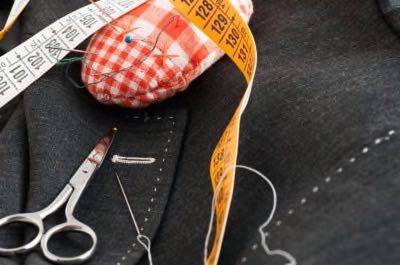For those deafened by the silence of their wardrobe, a new technology partnership will enable connected clothes to keep you regularly updated with news from your t-shirt drawer.
As reported by Quartz, London-based Internet of Things (IoT) startup Evrythng forged a deal with clothes-maker Avery Dennison to connect 10 billion pieces of clothing to the internet. The value of the deal was not released.
Smart labels will be attached by Avery Dennison to clothing during its manufacturing process, with the first web-enabled products hitting stores by the summer. Data produced by each unique article of clothing will feed into Evrythng’s platform for analysis.
Unique clothing identifiers could allow consumers to verify the ethical origin of materials in clothes, determine product availability or let aging shoes advise the customer how to recycle that type of footwear. The data could also enable brands to use the platform to enhance loyalty programs.
“The internet of things is still at the margins in the way it hits consumers’ lives; now you have billions of everyday objects with identities in the cloud,” said Evrythng co-founder Andy Hobsbawm.
Avery Dennison makes products for such brands as Hugo Boss, Nike and Under Armor, though the companies would not say which particular brands have signed up for the initiative. However, Avery Dennison suggests that sportswear companies will likely be early adopters of IoT enabled clothes, especially considering firms like Nike are already making smart sneakers.
“We’re noticing sports brands engaging consumers with technology more and more,” says Avery Dennison vice president Deon Stander.
Now clothes provide data, too
Clothing labels have been providing digital information for years through such means as bar codes and QR codes, but that information is on broader classes of products. Meanwhile Evrythng says its technology allows a new IoT approach where each unique piece of clothing produces granular data that can be better mined for actionable information.
Privacy and security issues remain a key concern as more objects and articles of clothing become connected to the internet and produce streams of data. Evrythng says they will incorporate privacy safeguards into its clothing label project that will allow customers to set the level of information they are sharing.
“The more information accessed on the web the better, but like everything else on the internet, there also has to be individual judgement calls about what’s appropriate. Not everyone wants to share everything, and that’s fine,” Hobsbawm says.
















